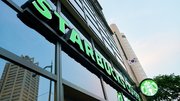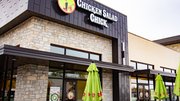Article
Expert advice for restaurateurs if a fake restaurant Facebook page steals your location
At least 60 Houston restaurants are being misrepresented as fictional restaurants, as we reported yesterday, but nobody is sure why. We posed the question to the experts to help other restaurateurs avoid being victimized.

August 10, 2016 by S.A. Whitehead — Food Editor, Net World Media Group
Yesterday, we told you about the dozens of fake restaurant Facebook pages reported by consumers in Houston. These pages lists the street address of a real restaurant, but give the establishment a fictional name and, usually, advertise a different genre of food. QSRweb.com contacted Facebook to obtain additional information, but was unable to obtain a response from the company about the extent of the problem, whether it exists in other cities or what, if anything, Facebook is doing about it.
Houston Press reporter Phaedra Cook reporter broke the story after numerous readers reported the problem to her seeking answers. But so far, they've been hard to come by. No one seems to know why anyone would go to the trouble of creating the fake pages, which have lured many unsuspecting Houstonians to eateries that, in fact, don't exist.
As Cook told QSRweb.com in a phone interview, "Everybody I've talked to has been baffled."
We wondered about the motivation as well, so we asked Melissa Kerwin, associate director of social media at Cardinal Web Solutions what could be behind the scam:
Q: Why would someone create fake restaurant pages, with addresses of real restaurants, but not actually represent the true business at that location?
A: The most likely case for creating a fake business page is for data collection. When users "like" a page on Facebook many data points are shared with the page (including anything you have not made private in your settings). The need for a local address could also be to attempt to serve advertising to people who live and work near the area.
Q: Would it be possible to monetize that? In other words, is this a scam someone is trying to profit from financially?
A: It’s possible this could be monetized by selling the Facebook pages to other users (although this is against Facebook’s policy) or the list of fans and their data could be sold to other scammers.
Q: Have you heard of this type of thing happening elsewhere?
A: Scams like this generally result in pages being shut down, as they are reported to Facebook. This sort of behavior has been happening on Facebook for many years, and although they have put a lot in place to combat it, it’s difficult to monitor all 1 billion users.
Q: What do you see as being the problem with this for the real businesses in place at the addresses used by the scammers?
A:The problem with this for the legitimate business generally is customer confusion. Many people use Facebook to find places to dine near them and this sort of scam could lead users to a place they didn’t expect.
Q: Any tips you can think of to help those businesses affected?
A:If you are a victim of this kind of scam, let your Facebook fan base know. Post it on your Facebook page and ask people to share the message. Announce the issue on other platforms as well — Instagram, Twitter or via email.
The next step would be to verify your business on Facebook. This provides you with the blue checkmark you often see on major brands' pages. It is available to local businesses as well and is the best way to show your business is legitimate.
Also, encourage your followers to report [the scam to] Facebook. This is the fastest way to have the page removed.
About S.A. Whitehead
Pizza Marketplace and QSRweb editor Shelly Whitehead is a former newspaper and TV reporter with an affinity for telling stories about the people and innovative thinking behind great brands.
 ChatGPT
ChatGPT Grok
Grok Perplexity
Perplexity Claude
Claude












